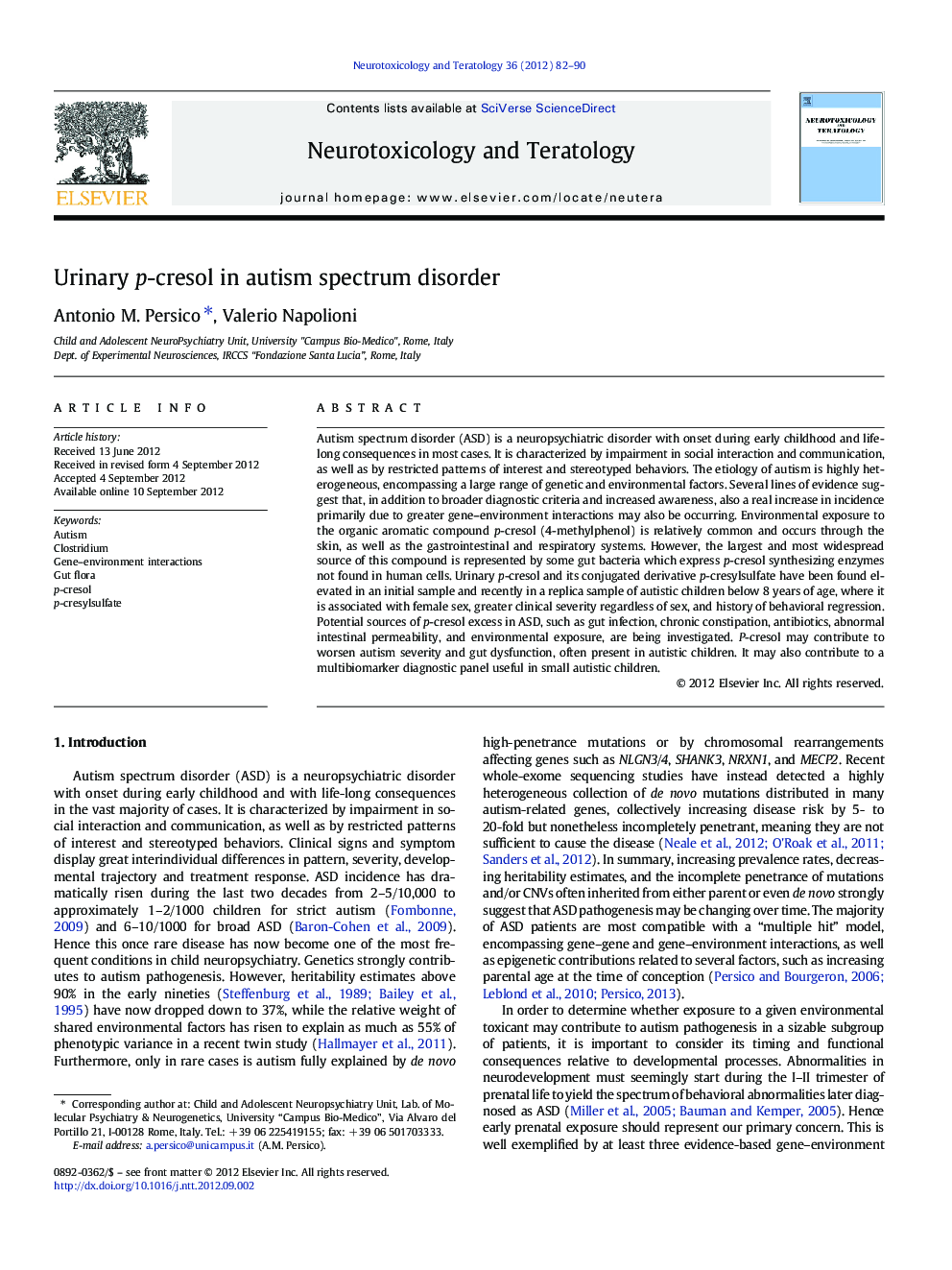| کد مقاله | کد نشریه | سال انتشار | مقاله انگلیسی | نسخه تمام متن |
|---|---|---|---|---|
| 2591417 | 1562099 | 2013 | 9 صفحه PDF | دانلود رایگان |

Autism spectrum disorder (ASD) is a neuropsychiatric disorder with onset during early childhood and life-long consequences in most cases. It is characterized by impairment in social interaction and communication, as well as by restricted patterns of interest and stereotyped behaviors. The etiology of autism is highly heterogeneous, encompassing a large range of genetic and environmental factors. Several lines of evidence suggest that, in addition to broader diagnostic criteria and increased awareness, also a real increase in incidence primarily due to greater gene–environment interactions may also be occurring. Environmental exposure to the organic aromatic compound p-cresol (4-methylphenol) is relatively common and occurs through the skin, as well as the gastrointestinal and respiratory systems. However, the largest and most widespread source of this compound is represented by some gut bacteria which express p-cresol synthesizing enzymes not found in human cells. Urinary p-cresol and its conjugated derivative p-cresylsulfate have been found elevated in an initial sample and recently in a replica sample of autistic children below 8 years of age, where it is associated with female sex, greater clinical severity regardless of sex, and history of behavioral regression. Potential sources of p-cresol excess in ASD, such as gut infection, chronic constipation, antibiotics, abnormal intestinal permeability, and environmental exposure, are being investigated. P-cresol may contribute to worsen autism severity and gut dysfunction, often present in autistic children. It may also contribute to a multibiomarker diagnostic panel useful in small autistic children.
► Gene–environment interactions contribute to the pathogenesis of autism spectrum disorder.
► Environmental exposure to p-cresol is common and acute/chronic toxicity well-documented.
► Some gut bacteria also produce p-cresol and the gut flora is often abnormal in autism.
► Urinary p-cresol is abnormally elevated in small children with autism.
► P-cresol may worsen autistic behaviors in a subset of children and possibly be included in a multibiomarker diagnostic panel.
Journal: Neurotoxicology and Teratology - Volume 36, March–April 2013, Pages 82–90